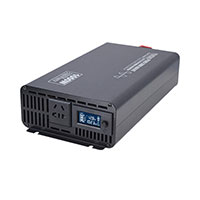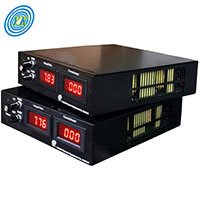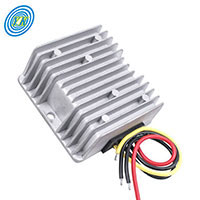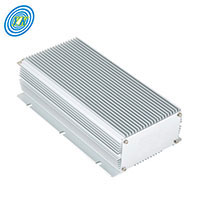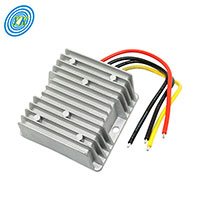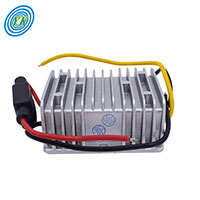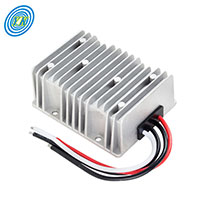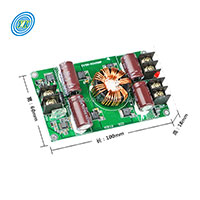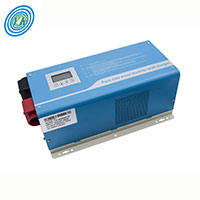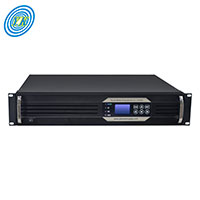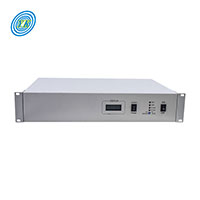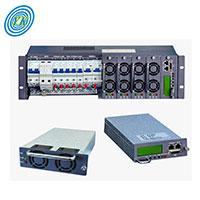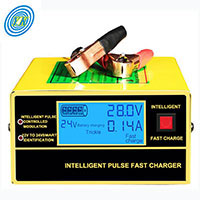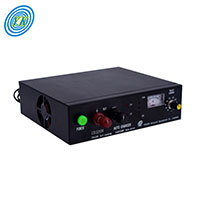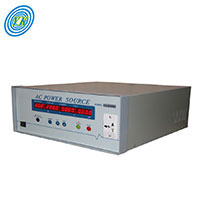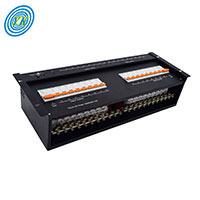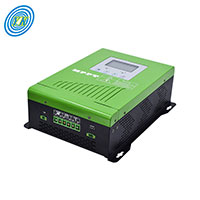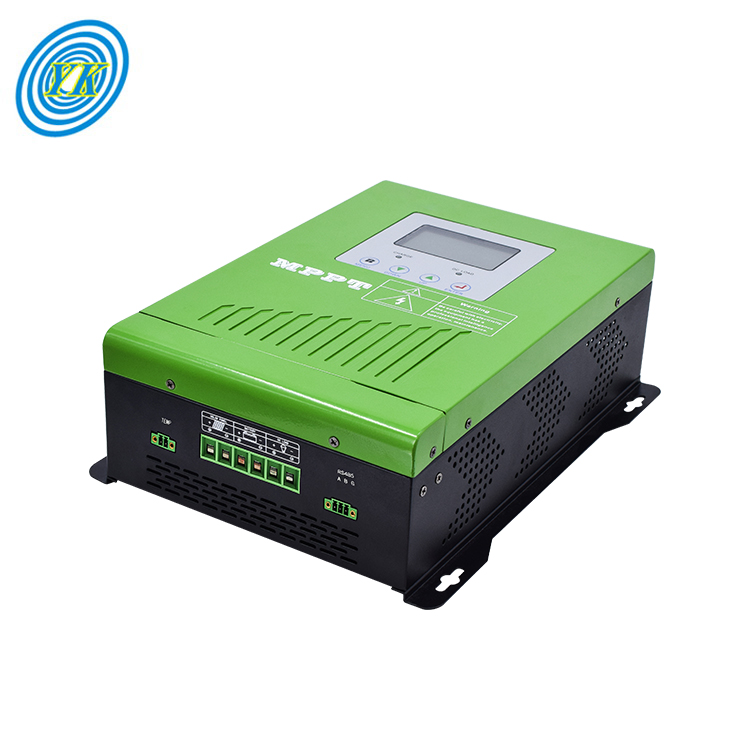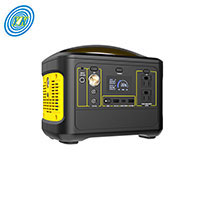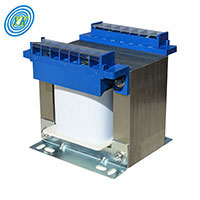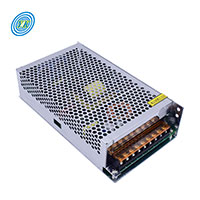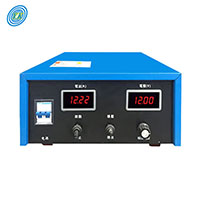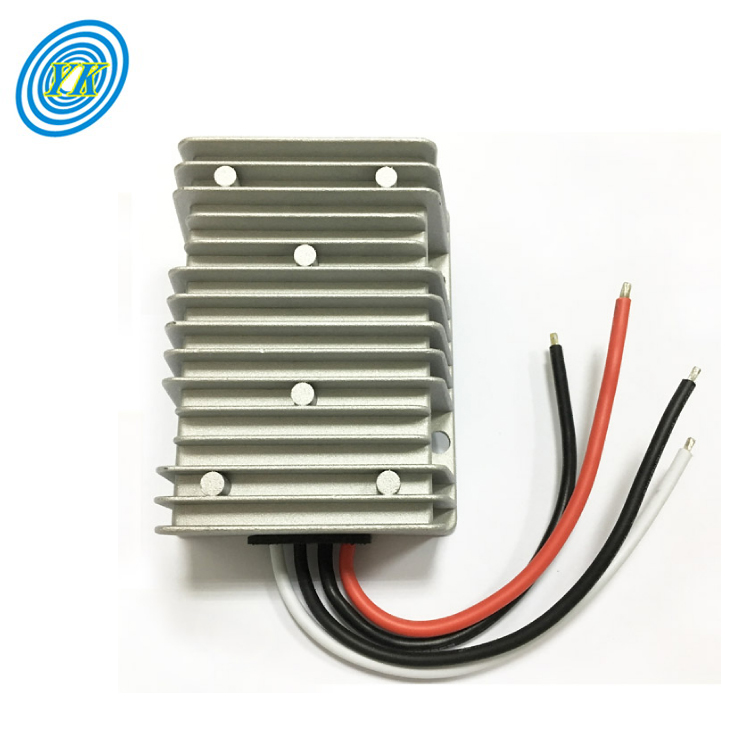
Click: 705 Date: 12/16/2023 3::19::13 PM
Evolving Power Supply Solutions in the AC-DC Converter Industry: A Comprehensive Examination with a Focus on YUCOOUnderstanding Power Conversion: The Role of AC to DC Converters in the IndustryAC to DC converters, also known as rectifiers, are crucial components in the power conversion industry. They facilitate the conversion of alternating current (AC), which is the standard type of current supplied by power grids, into direct current (DC) usable by electronic devices and batteries. This conversion process is vital in various applications, such as power supplies for electronic devices, battery charging, and renewable energy systems.There are several techniques for accomplishing this conversion, each with its unique advantages and disadvantages. For instance, the conventional diode rectifier is simple and reliable, but it generates a significant amount of harmonic distortion, which can impair power quality. On the other hand, resonant converters can provide high-efficiency power conversion with minimal harmonic distortion, but they are more complex and require careful design to ensure stable operation.In the realm of AC to DC converters, YUCOO has established itself as a leading manufacturer. They offer a wide range of converters suitable for various applications, including industrial power supplies, renewable energy systems, and electric vehicles. YUCOO's converters are known for their high efficiency, reliability, and advanced features such as soft-switching and power factor correction.One of the key challenges in designing AC to DC converters is managing the trade-off between performance and complexity. High-performance converters often require complex control strategies and sophisticated circuit designs, which can increase cost and reduce reliability. Therefore, there is a constant drive in the industry to develop new converter topologies and control strategies that can deliver high performance while minimizing complexity.Looking ahead, one of the emerging trends in the AC to DC converter industry is the integration of artificial intelligence (AI) into the design process. AI algorithms can be used to optimize converter designs, predict system performance under various operating conditions, and even diagnose faults in real-time. This could significantly speed up the design process and improve the reliability and performance of the converters.In conclusion, AC to DC converters play a crucial role in the power conversion industry, enabling the safe and efficient use of electricity in a wide range of applications. The ongoing development of new converter technologies and control strategies, driven by companies like YUCOO, promises to deliver even better performance and reliability in the future.Exploring the Key Technologies of AC-DC Power Supply: From Rectifiers to InvertersThe AC-DC power supply industry hinges on key technologies that facilitate the transformation of AC to DC, with rectifiers and inverters playing pivotal roles. Rectifiers, which convert AC into DC, and inverters, which convert DC back into AC, are fundamental components in power conversion systems.Rectifiers come in several forms, including the conventional diode rectifier and resonant converters. While diode rectifiers are simple and reliable, they generate considerable harmonic distortion, which can degrade power quality. Conversely, resonant converters offer high-efficiency power conversion with minimal harmonic distortion but require intricate design for stable operation.Inverters transform DC into AC, a process crucial in applications like renewable energy systems where DC generated from sources like solar panels must be converted into AC for use in homes and businesses. There are various types of inverters, each with its unique characteristics and suited for different applications.A key player in the AC-DC power supply industry is YUCOO, a company renowned for producing high-quality converters. YUCOO's products are recognized for their high efficiency, reliability, and advanced features, including soft-switching and power factor correction. Their product range caters to a variety of applications, including industrial power supplies and renewable energy systems.One of the significant challenges in designing AC-DC converters is balancing performance and complexity. High-performance converters often require complex control strategies and sophisticated circuit designs, which can increase the cost and potentially decrease reliability. Therefore, the industry is continually striving to develop new converter topologies and control strategies that can deliver high performance while minimizing complexity.In conclusion, rectifiers and inverters form the backbone of the AC-DC power supply industry, facilitating the efficient use of electricity across a host of applications. The ongoing development of new converter technologies and control strategies, with companies like YUCOO at the forefront, promises to deliver improved performance and reliability in the future.The Significance of DC-DC Converters in the Power Supply IndustryDC-DC converters, which convert one level of direct current (DC) voltage to another, are integral components in the power supply industry. These converters are particularly prominent in the design and operation of electronic devices, which often require specific voltage levels to function correctly.The market for DC-DC converters is witnessing substantial growth, driven by technological advancements in DC-DC converter components. Additionally, the rising adoption of electric vehicles and the increasing use of DC-DC converters in railway applications are contributing to the expansion of the market.In electric vehicles, DC-DC converters play a crucial role in managing the electrical energy created by the vehicle's generator. They are typically used to provide power to the 12V system, but can also be used for other functions such as starting the vehicle and supporting autonomous driving.In railway applications, DC-DC converters are used to convert DC battery voltages to a lower voltage for use in various control and energy circuits. This is because railway rolling stock often uses a DC power distribution system so that batteries can maintain electrical power in the event of a generator failure.Moreover, the growing demand for power electronics components is driving the need for DC-DC converters. These converters are vital parts of integrated circuits used in power electronics equipment, and their manufacturing has to meet regulatory and safety requirements like EN60950 and UL60950 for IT equipment.Despite the significant role of DC-DC converters in the power supply industry, there are challenges to their manufacturing. Designing high-frequency, high input voltage DC-DC converters is considered one of the primary challenges faced by manufacturers. Furthermore, global shortages in integrated circuits have affected the supply chain of DC-DC converters.In conclusion, DC-DC converters are a pivotal part of the power supply industry. Their role in various applications, from electric vehicles to railway systems, underscores their importance. Despite the manufacturing challenges and supply chain disruptions, the market for DC-DC converters continues to grow, driven by increasing demand and technological advancements.The Impact of Switching Power Supply on the AC-DC Converter IndustrySwitching power supplies, also known as switch-mode power supplies, have significantly impacted the AC-DC converter industry. These power supplies are popular due to their ability to continuously toggle between on and off states, thereby managing power consumption and reducing energy waste.One of the main advantages of switching power supplies is their high efficiency, which can reach up to 95% with the correct components and system configuration. This high level of efficiency is particularly important in today's energy-conscious society, where there is a growing demand for energy-efficient devices.Switching power supplies also contribute to the downsizing of AC-DC converters. By integrating multiple features onto a single IC chip, they allow for a smaller footprint and fewer parts, which leads to more flexibility in installations and reduced manufacturing and shipping costs. However, this downsizing can be challenging to achieve due to the need for heat sinks and cooling fans, which are necessary to control and minimize heat generation.Despite their advantages, switching power supplies do present certain challenges. They require high-voltage tolerant components, including high-power MOSFETs (Metal Oxide Semiconductor Field-Effect Transistors). Moreover, the risk of obsolescence is a significant issue faced by engineers and designers. They must ensure that the chosen AC-DC converter will be guaranteed for the life of the product, as having to redesign because of the obsolescence of an AC-DC converter can be costly and time-consuming.In conclusion, switching power supplies have had a profound impact on the AC-DC converter industry. They offer high efficiency and contribute to downsizing, but they also present certain challenges that need to be addressed. Nevertheless, the ongoing advancements in technology promise to overcome these challenges and further enhance the performance and reliability of AC-DC converters.The Future of AC-DC Power Supply Industry: The Integration of Renewable Energy SourcesThe future of the AC-DC power supply industry lies in its ability to adapt to the growing demand for renewable energy sources. As countries around the world strive to reduce their carbon footprint, the integration of renewable energy into the AC-DC power supply industry is no longer just an option, but a necessity.In the past, the AC-DC power supply industry has primarily relied on non-renewable energy sources. However, with the increasing awareness of environmental issues and the constant advancements in technology, renewable energy sources such as wind, solar, and hydroelectric power have become increasingly viable and cost-effective.Wind and solar power, in particular, hold great potential. They are abundant, renewable, and emit no greenhouse gases during operation. The integration of these renewable energy sources into the AC-DC power supply industry would significantly reduce its environmental impact. However, the intermittent nature of these energy sources presents a challenge. AC-DC converters that can efficiently handle the fluctuations in power generation from these sources are crucial.Hydroelectric power is another renewable energy source that can be effectively integrated into the AC-DC power supply industry. Unlike wind and solar power, hydroelectric power can provide a steady and reliable source of energy. However, the construction of hydroelectric power plants often has significant environmental and social impacts, which need to be carefully managed.As the AC-DC power supply industry moves towards the integration of renewable energy sources, companies like YUCOO are leading the way. YUCOO's AC-DC converters are designed to handle the variable nature of renewable energy sources, making them a key player in the drive towards a more sustainable future.In conclusion, the future of the AC-DC power supply industry lies in its ability to adapt and integrate renewable energy sources. Not only will this shift towards renewable energy sources help to reduce the industry's environmental impact, but it will also open up new opportunities for innovation and growth. As technology continues to evolve, the integration of renewable energy sources in the AC-DC power supply industry will become increasingly efficient and cost-effective.
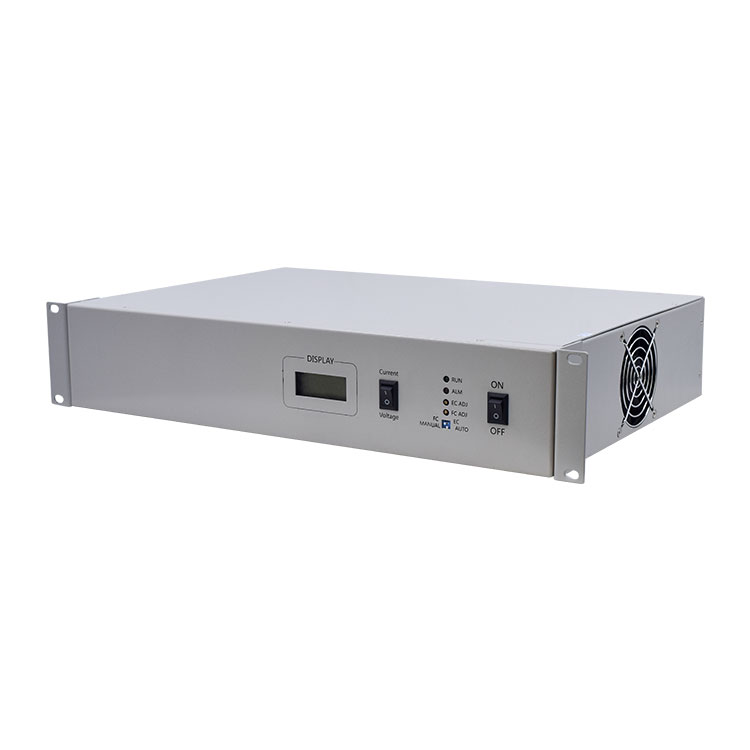
Unraveling DC/DC Converters: An In-depth Analysis of YUCOO’s Power Solutions
Click: 772 Date: 12/15/2023 2::46::04 PM
Unraveling DC/DC Converters: An In-depth Analysis of YUCOO's Power SolutionsIntroduction to DC/DC ConvertersDC/DC converters, also known as DC to DC converters, are electronic circuits that convert one DC voltage level to another. These devices are crucial in many applications, as they provide a method to change the voltage level in a DC circuit, which is essential in many electronic devices and power supply designs.The basic function of a DC/DC converter is to take an input DC voltage and deliver an output DC voltage, which can be higher, lower, or even the same level as the input voltage, depending on the specific type of converter and its design.DC/DC converters play an important role in various applications and industries. For instance, in the automotive industry, they are used in electric vehicles to manage the power supply system by boosting or chopping the voltage levels. In the telecommunications industry, they are used to convert the voltage supplied by batteries or power grids to the voltage levels required by specific devices or systems.More specifically, DC/DC converters are used in electric vehicle powertrains, where they interface different elements in the electric power train by boosting or chopping the voltage levels. They are also used in the design of power systems for fuel cell hybrid electric vehicles.Overall, DC/DC converters are essential components in many electronic systems, providing the ability to control and modify voltage levels as needed for various applications.Different Types of DC/DC ConvertersDC/DC converters are electronic devices that convert a source of direct current (DC) from one voltage level to another. They are important in many electronic systems where the power source has a different voltage level than the load. The most common types of DC/DC converters are Buck converters, Boost converters, and Isolated converters.Buck DC/DC Converters: Also known as step-down converters, Buck converters reduce the input voltage to a lower output voltage. They are used in many power applications where the power source has a voltage level higher than what the load requires.Boost DC/DC Converters: Also known as step-up converters, Boost converters increase the input voltage to a higher output voltage. They are used in situations where the power source has a voltage level lower than what the load requires.Isolated DC/DC Converters: These converters have an electrical barrier between their input and output. This isolation can protect the load from electrical noise or voltage spikes that may occur on the input side. Isolated converters are used in sensitive applications like medical devices or communication equipment where electrical isolation is required for safety or performance reasons.Each type of DC/DC converter has specific applications based on their characteristics.Buck converters are commonly used in power distribution systems where the source voltage is typically higher than what the load devices require. They are also used in battery-operated devices to extend the battery life as the battery voltage decreases.Boost converters are often used in devices like LED drivers or sensor circuits that need a higher voltage than the power source can provide. They are also used in battery-operated devices to maintain a constant output voltage even as the battery voltage decreases.Isolated converters are used in applications that require electrical isolation between the input and the output. This can include medical devices, communication equipment, and industrial controls where electrical noise or voltage spikes on the input side could cause problems.Technological Advancements in DC/DC ConvertersDC/DC converters have seen significant advancements and evolution over the years, with improvements in efficiency, miniaturization, and the ability to handle higher power levels. This is largely due to the development of new semiconductor materials, the introduction of new converter topologies, and improvements in control techniques.One of the key advancements in DC/DC converter technology is the development of high frequency converters. These converters operate at much higher frequencies than traditional converters, which allows for smaller component sizes and hence, more compact converters. This is particularly important in applications where space is at a premium, such as in mobile devices and automotive applications.Another significant advancement is the development of wide bandgap (WBG) semiconductors such as silicon carbide (SiC) and gallium nitride (GaN). These materials have superior properties compared to traditional silicon, including higher breakdown voltage, higher thermal conductivity, and the ability to operate at higher temperatures. This has led to the development of more efficient and robust DC/DC converters.Digital control techniques have also been developed and improved, allowing for more precise and flexible control of DC/DC converters. This has enabled the development of converters with improved performance and functionality, such as the ability to dynamically adjust the output voltage in response to changes in load or input conditions.Efficiency and noise considerations are crucial in the design and operation of DC/DC converters. Efficiency is critical as it directly impacts the power usage and thermal management of the converter. Higher efficiency means less power is wasted as heat, which can reduce the need for cooling and improve the reliability of the converter. Noise, both electrical and audible, can interfere with other electronic devices and is generally undesirable. Advanced control techniques, careful circuit design, and the use of high-quality components can help to minimize noise.YUCOO's DC/DC Converters and Their ApplicationsYUCOO is a leading manufacturer in the power supply industry with over 20 years of experience, specializing in the design and production of DC/DC converters. The company provides a wide range of DC converters, including Buck, Boost, and Isolated converters, catering to various applications and industries such as consumer electronics, automotive systems, and renewable energy solutions.YUCOO's Buck DC/DC converters are designed to step down voltage, making them particularly useful in applications like bus systems, where they ensure a stable and reliable power supply. The company's Boost DC/DC converters, on the other hand, are designed to step up voltage, which is essential in battery-operated devices where the battery voltage needs to be boosted to power certain components.Moreover, YUCOO's isolated DC/DC converters are equipped with an electrical barrier between the input and output, providing isolation that protects sensitive components from electrical noise or voltage spikes.In addition to these, YUCOO also offers other types of converters, such as adjustable DC power supplies, AC to DC converters, and bared board DC DC converters, among others.In terms of applications, YUCOO's DC/DC converters are used in a variety of settings. These include network equipment, telecommunications, and industrial equipment, among others. The company's ability to customize power supplies according to specific requirements ensures cost-effectiveness for its customers.For instance, YUCOO's transformer buck DC/DC converter, designed to step down voltage from 48V to 12V with a 30A output, is particularly useful in applications like bus systems. This demonstrates YUCOO's commitment to developing specialized power supply solutions that cater to the unique needs of specific industries.In conclusion, YUCOO's commitment to quality, innovation, and customer satisfaction, as well as their diverse range of products, makes them a reliable and leading choice in the DC/DC converter industry.The Future of DC/DC Converters and YUCOO's RoleThe future of DC/DC converters is promising, with many trends that are likely to shape the market. These include the increasing use of electronic vehicles, the expansion of data centers and telecommunication facilities, the rising focus on battery-powered special-purpose vehicles, and the growing number of DC powered applications in manufacturing, healthcare, and defense applications.As for YUCOO's role in the future of DC/DC converters, while specific strategies and plans are not publicly available, it can be inferred from the company's track record and market trends that YUCOO will likely continue to innovate and adapt its products to meet future market demands.Given the projected growth in the use of electronic vehicles and the associated need for DC/DC converters, YUCOO may focus on developing and improving converters specifically for this application. The company may also invest in research and development to create more efficient and compact converters, given the increasing demand for such features.In terms of geographical markets, North America is emerging as an opportunistic DC-DC Converter Market, boosted by the growing implementation of IoT in the region. However, Asia Pacific is also likely to emerge as an attractive DC-DC Converter Market, driven by the growing telecommunication sector in the region.YUCOO could strategize to cater to these markets by developing products that meet the specific needs of these regions, forming partnerships with local companies, or setting up local branches or distribution networks.In summary, the future of DC/DC converters is bright, and YUCOO, with its expertise and experience in the industry, is well-positioned to take advantage of the upcoming opportunities. However, the company will need to continuously innovate and adapt to the changing market demands to stay competitive.
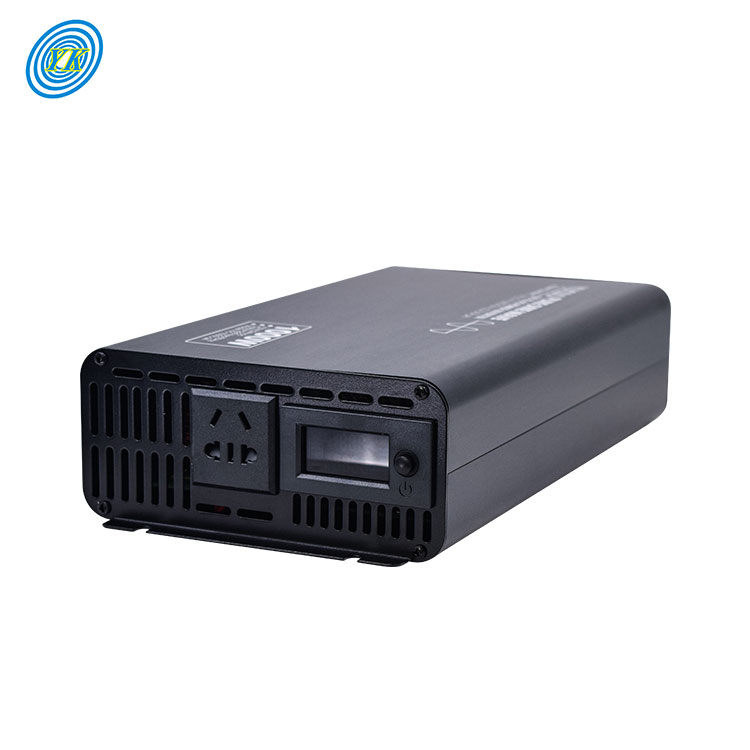
Click: 779 Date: 12/14/2023 4::06::03 PM
Understanding the Inverter Power Supply Industry: Market Analysis, Technological Advancements, Regulatory Frameworks, Application Scenarios, and Future TrendsExploring the Inverter Power Supply Market: An In-depth AnalysisMarket Size: The global inverter market size was valued at USD 16.3 billion in 2022 and is expected to expand at a compound annual growth rate (CAGR) of 15.7% from 2022 to 2027. Other sources suggest slightly different figures, with some reports estimating the market size to reach USD 76.0 billion in 2022, USD 35.22 billion in 2021, and USD 72.7 billion in 2023.Development Trends: The growth of the inverter market can be attributed to growing investments in renewable power generation technologies and green infrastructure. The rapidly increasing usage of power backup systems in various sectors is also fueling the demand for inverters.Major Participants: The inverter market is dominated by a few major players that have a wide regional presence. Some of the key players include Huawei Technologies (China), Sungrow Power Supply (China), SMA Solar Technology (Germany), Power Electronics (Spain), FIMER (Italy), SolarEdge Technologies (Israel), Fronius International (Austria), Altenergy Power System (US), Enphase Energy (US), Darfon Electronics Corporation (China), and Schneider Electric (France).Fastest-Growing Segment: The automotive segment is expected to be the fastest-growing segment in the inverter market. The adoption of electric vehicles is growing substantially due to the implementation of emission regulations to limit the emissions from traditional vehicles.Regional Market Dynamics: The Asia Pacific region is witnessing significant developments in the renewable energy sector due to increased initiatives towards climate change and net zero targets, which has supported the demand for inverters across countries of the region.Inverter Power Supply Technology: Innovations and AdvancementsTechnological Maturity: Photovoltaic (PV) inverters have reached a stage of technological maturity where the core DC-AC conversion is mature. However, there is still room for improvement and innovation in other areas such as accommodating battery storage, EV charging, vehicle-to-grid solutions, virtual power plant capabilities, smart controls, and connectivity.Performance Optimization: Studies have shown that the performance of most PV inverters and power optimizers remains optimal for up to 15 years. This indicates that the technology is reliable and durable, which is crucial for the longevity and efficiency of PV systems .New Product Launches: In 2022, there were new and better inverters launched in the market. For example, Sungrow introduced a new "1+X" modular central inverter solution, and Gamesa Electric launched its Proteus PV central inverter. These new products offer higher energy yields and industry-leading efficiency.Off-Grid Inverters: There has been a growing trend of more off-grid inverters emerging into the market. These inverters are certified to handle both on- and off-grid operation, adding some variation to grid-tie-only solutions. This trend is particularly relevant in regions where power outages are more common.Semiconductor Technology: Silicon carbide semiconductor PV inverters continue to show considerable opportunity for the industry. However, electric vehicles control the demand, costs remain high, and IGBT-powered inverter topologies in solar remain the dominant type.These advancements and innovations are shaping the future of the inverter power supply industry, making it more efficient, reliable, and versatile.Regulation and Standards in the Inverter Power Supply IndustryRegulatory Frameworks: The regulation of the power sector is a complex task due to the dynamic and large-scale nature of electricity-supply systems. Traditional regulatory frameworks are being supplemented by liberalized and re-regulated environments. The regulatory design is a key driver of both the industry efficiency and the returns on investment.Key Regulations: The Electricity Act of 1995 in China governs the investment, generation, and supply of electricity. It includes prior approval for investment, regulation on generation and grid, regulation on supply and use of electricity, price regulation, and protection of assets for the electricity industry.Electricity Pricing Reform Rules: The Electricity Pricing Reform Rules in China include pricing rules for electricity sold to the grid, pricing rules for electricity on transmission and distribution, and pricing rules for electricity on the retail sector.Regulatory Institutions: The State Electricity Regulatory Commission (SERC) in China has various responsibilities, including proposing tariffs and adjustments to government pricing authority, investigating any violations of laws and regulations, safeguarding the implementation of universal service policy, organizing sector reform programs, and completing any other assignment delegated by the State Council.Proposed Regulatory Reform: The proposed regulatory reform in China aims to keep market competition fair and orderly, ensure the safe and reliable operation of electricity, help investors' returns stable, make the development of the industry sustainable, meet the demand of economic growth, and generate a reasonable pricing mechanism.These regulatory frameworks and standards play a crucial role in shaping the inverter power supply industry and ensuring its sustainable and efficient development.Applications of Inverter Power Supply in Various SectorsIndustrial Applications: Inverters are primarily used in uninterrupted power supplies (UPS). The function of the power inverter circuit in UPS is to convert DC power to AC power at the required voltage level. In industrial and commercial applications (for example- AC adjustable speed drive i.e. ASD, induction heating, etc.), the inverter is used for controlling the AC motor drive’s input voltage.Domestic Appliances: In domestic appliances (like as refrigerators, air conditioning, etc), the inverter is very essential for controlling the speed of the compressor and regulating the required power.Solar Energy Systems: In solar energy systems and wind turbine systems, the inverter is primarily used to convert the DC input power from solar panels or wind turbines into AC power which are compatible with other appliances.Electric Aircraft and Vehicles: In electric aircraft and electric vehicles (EV), the power inverter is the most important device for power conversion and regulation.Advanced Technologies: In advanced technologies such as smart grid systems, Vehicle to Home (V2H), and Vehicle to Grid (V2G), the inverter is very essential equipment. The Vehicle to Home (V2H) and Vehicle to Grid (V2G) are basic concepts that enable batteries (present in electric vehicles) to supply home loads and grids through inverters.These application scenarios show the wide range of uses for inverter power supply in various sectors, from industrial and commercial applications to domestic appliances and advanced technologies.Future Trends in the Inverter Power Supply IndustryIncreasing Demand for Electricity: The increasing demand for electricity, coupled with a rising gap between the demand and supply of electricity, along with many other factors, are expected to surge the sales of power inverters.Rapid Economic Growth and Rising Disposable Incomes: The rapid economic growth and rising disposable incomes of individuals across the globe have enabled them to spend more on products like power inverters, which enhance their lifestyles and provide comfort.Rapid Urbanization and Growing Electrification Rates: With rapid urbanization and growing electrification rates, most people nowadays rely on electronic appliances and gadgets. This has resulted in a significant need for an uninterrupted power supply, in turn increasing the sales of power inverters as an alternate backup solution in case of outages.Investment in Research and Development (R&D): Manufacturers are investing in R&D activities to introduce new technologies and enhance their operational characteristics. For instance, they have recently invented a new class of power inverters, which use a single switching transistor and generate infinite levels of voltage, as compared to inverters that use multiple transistors and provide only one voltage level.These future trends indicate a promising future for the inverter power supply industry, with continued market growth, increasing demand for electricity, and advancements in technology.
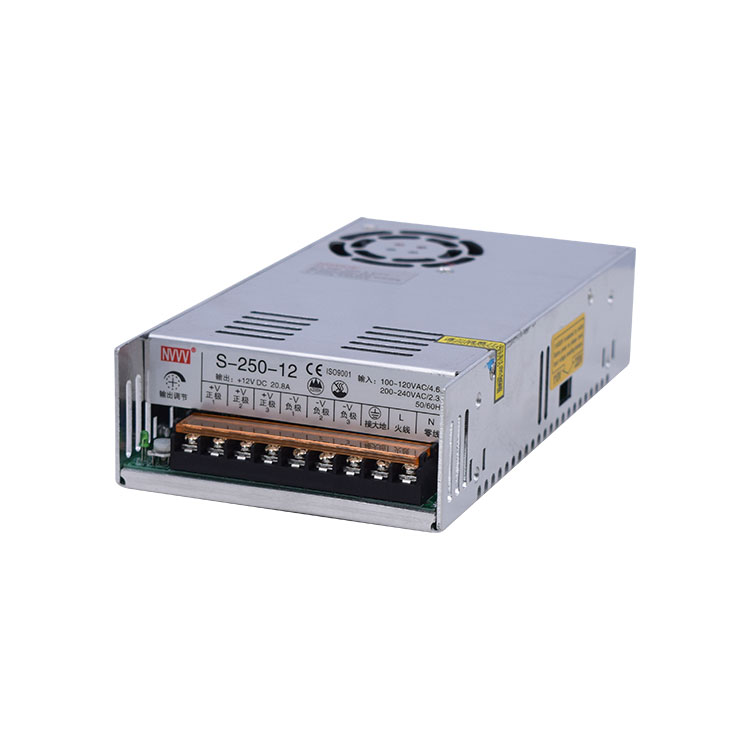
Unveiling the Potential of Switch Power Supply: A Comprehensive Look at YUCOO’s Innovative Offerings
Click: 701 Date: 12/13/2023 10::22::03 AM
Unveiling the Potential of Switch Power Supply: A Comprehensive Look at YUCOO's Innovative OfferingsThe Future of Switch Power Supply: A Deep Dive into the Industry TrendsThe global switch mode power supply transformers market size was valued at USD 1.6 billion in 2019 and is expected to grow at a compound annual growth rate (CAGR) of 2.1% from 2020 to 2027. This growth is driven by the benefits of switch mode power supply transformers such as efficient power usage, lightweight, compact size, and flexible power conversion.Switch mode power supply is an electronic circuit that uses switching devices to convert power at high frequencies. This high-frequency operation enhances the overall efficiency of the SMPS transformers, leading to increased demand for these circuits.However, the high-frequency noise generated by these transformers has posed a challenge to their adoption across all applications. This is particularly true for applications that require high performance and are seeking to maintain data integrity.To overcome this issue, companies like Texas Instruments Incorporated and Analog Devices Inc. are developing solutions. For instance, the Analog Devices’ product ADP5135 includes multiple-switching buck regulators, which can eliminate the beat frequency problem since the company’s products’ regulators are synchronized to a common source.In addition to these technical advancements, the growing inclination of manufacturers to reduce carbon dioxide emissions has led to the introduction of eco-friendly products. The paradigm shifts towards miniaturization of electronic components, and the emergence of IoT are also expected to upkeep market growth over the forecast period.The consumer electronics segment held the largest revenue share of 49.6% in 2019 and is anticipated to continue its dominance in the market for switch mode power supply over the forecast period. The AC to DC segment accounted for 46.6% revenue share in 2019 and is projected to grow at a substantial rate in the switch mode power supply transformers market in the next seven years.Despite the challenges posed by the COVID-19 pandemic, which caused supply chain disruption, the market for switch mode power supply is anticipated to experience a plunge for a couple of years and record steady growth over the long term.In conclusion, the future of switch power supply looks promising, driven by technological advancements, eco-friendly considerations, and the growing demand for high-efficiency power supplies in various applications. Companies like YUCOO, which are innovating and offering efficient and cost-effective solutions, will play a significant role in shaping this future.YUCOO's Switch Power Products: Pioneering Efficiency and InnovationYUCOO Network Equipment Co., LTD, established in 2003, has been a leading manufacturer in China, specializing in designing, researching, developing, and selling high-frequency switching power supplies, DC/AC power inverters, frequency converters, adjustable power supplies, battery chargers, power distribution units, rectifier systems, and DC-DC converters. Over the past two decades, YUCOO has been at the forefront of technological advancements in the power supply industry, continuously innovating its products to meet the evolving needs of various sectors.One of the significant technological advancements in YUCOO's power supply products is the development of high-efficiency designs. By incorporating advanced power conversion technologies and topologies, YUCOO has been able to minimize power losses and maximize energy conversion. The result is power supplies that are more energy-efficient, leading to energy savings and reduced heat generation.YUCOO has also embraced digital control and monitoring capabilities in their power supply products. By incorporating digital signal processing (DSP) technology, microcontrollers, and intelligent algorithms, YUCOO's power supplies offer enhanced control, flexibility, and real-time monitoring capabilities. This allows for precise regulation, adaptive control, and advanced features such as remote monitoring and programmability.In terms of safety, YUCOO has integrated advanced protection features into their power supply products. These include overvoltage protection, overcurrent protection, short-circuit protection, temperature monitoring, and fault detection mechanisms. These features ensure the safe operation of the power supply products and protect the connected equipment from potential damage or failures.YUCOO's power supply products also adhere to stringent energy efficiency standards, such as the 80 PLUS certification. The 80 PLUS program sets benchmarks for energy efficiency in power supplies, and YUCOO's products meet or exceed these standards. This ensures that customers can rely on YUCOO's power supplies to deliver high efficiency and contribute to energy conservation.In conclusion, YUCOO's pioneering efforts in developing and refining switching power converters have led to remarkable advancements in energy efficiency, power density, and reliability. These advancements have not only transformed the power supply industry but have also made a substantial impact on environmental sustainability. With their continued commitment to innovation, YUCOO is poised to shape the future of power conversion, driving energy efficiency and contributing to a greener world.The Role of Switch Power in the Evolution of the Electronics IndustrySwitch power has played a pivotal role in the evolution of the electronics industry. It has enabled the development of a wide range of devices, from small consumer electronics to large industrial machinery, by providing a means to convert electrical power from one form to another. This has been particularly important in the development of devices that operate on AC power, such as televisions, computers, and air conditioners, which require DC power to function.One of the key advancements in switch power technology has been the development of power electronic switches. These switches, which include diodes, transistors, and thyristors, are fundamental components of switch power systems. They control the flow of current, allowing for the conversion of power from one form to another. The classification of these switches is based on several factors, including the number of terminals, the number of junctions, their controllability, and their bidirectional capability.The development of switch power technology has also been driven by the need for increased efficiency and reliability. Power electronic switches have been classified based on their controllability, with some switches being fully controllable, semi-controllable, and others being uncontrollable. These classifications have guided the development of switch power systems that are more efficient and reliable, leading to advancements in the electronics industry.The thyristor family of power electronic switches, for instance, has been used to switch alternating currents and is utilized when the power requirements (current and voltage) are relatively high. The thyristor quickly gained traction in many AC applications, such as in AC drives and uninterruptible power supplies (UPSs). However, its turn-off incapability and the low frequency of operation (50–60 Hz) limited its application.In conclusion, switch power has been a key driver in the evolution of the electronics industry, enabling the development of a wide range of devices and contributing to advancements in power electronic switches. As the industry continues to evolve, the role of switch power is likely to become even more significant, driving further advancements in power conversion and efficiency.The Impact of Switch Power Supply on Consumer Electronics and Industrial ApplicationsSwitch power supplies have a profound impact on both consumer electronics and industrial applications. They are integral to the operation of a wide range of devices, from small consumer electronics such as smartphones, laptops, and televisions, to large industrial machinery such as servers, data centers, and manufacturing equipment.In consumer electronics, switch power supplies are critical for the efficient operation of devices. They convert the AC power supplied by the wall outlet into DC power, which is then used by the device. This conversion process is highly efficient, leading to reduced power consumption and lower operating costs for consumers. For example, smartphones and laptops, which rely heavily on battery power, benefit greatly from the energy-efficient operation of their switch power supplies.In industrial applications, switch power supplies are used to power a wide range of equipment, from servers and data centers to manufacturing machines. They enable these devices to operate efficiently and reliably, contributing to increased productivity and reduced operating costs. For example, in data centers, switch power supplies are used to power servers, which require a large amount of power. By providing efficient power conversion, switch power supplies help to reduce the energy consumption of data centers, contributing to energy efficiency and environmental sustainability.However, the use of switch power supplies also presents some challenges. One of the main issues is the generation of harmonic currents, which can cause problems such as interference with other electronic devices and potential damage to the switch power supply itself. To address this issue, researchers are developing new switch power supply designs that minimize harmonic current generation.In conclusion, switch power supplies play a crucial role in both consumer electronics and industrial applications. They enable devices to operate efficiently and reliably, contributing to energy efficiency and cost savings. However, ongoing research and development are needed to address the challenges associated with their use, ensuring their continued widespread adoption in the future.Switch Power Supply: A Key Player in the Global MarketSwitch power supplies have become a key player in the global market, contributing significantly to the efficiency and functionality of various electronic devices. They are used in a wide range of applications, from consumer electronics to industrial machinery, and are expected to continue their growth trajectory in the coming years.The global switching mode power supply market was estimated at US$23.8 billion in 2020 and is projected to reach US$29.2 billion by 2026, growing at a CAGR of 3.6% over the analysis period. This growth is primarily attributed to the introduction of new cost-effective and efficient technological products. The rapid growth in sales of consumer electronic products, such as personal computers, refrigerators, smartphones, and adapters, is driving an increased demand for switching mode power supply (SMPS) transformers.The AC/DC segment of the market is projected to grow at a 3.3% CAGR to reach US$15.3 billion by the end of the analysis period. This segment is a significant part of the global switching mode power supply market, highlighting the continued importance of AC/DC power supplies in various applications.Switching mode power supplies are also finding widespread use in industrial machine tools and control systems globally. Their lower shipping costs and variable power conversion make them an attractive option for these applications. Furthermore, the rising automotive industry that uses switching mode power supply in portable automobile chargers is another significant market driver.In conclusion, switch power supplies are a key player in the global market, contributing to the efficiency and functionality of various electronic devices. Their continued growth and development are expected to drive further advancements in the electronics industry, contributing to energy efficiency and environmental sustainability.
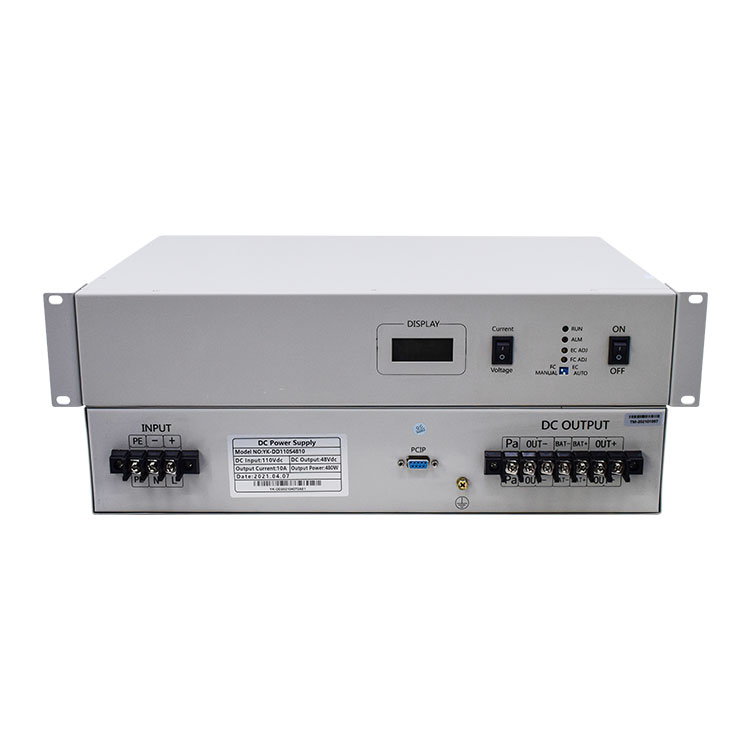
Exploring the Direct Current Power Transformer Industry: Trends, Choices, and Yucoo’s Innovation
Click: 612 Date: 12/12/2023 2::12::11 PM
Exploring the Direct Current Power Transformer Industry: Trends, Choices, and Yucoo's InnovationUnderstanding the Direct Current Power Transformer IndustryThe direct current power transformer industry is a crucial component of the power sector, responsible for converting direct current (DC) to alternating current (AC) and vice versa. This process is vital for power distribution and storage, making it a key player in the energy industry.Direct current power transformers have a high magnetic conductivity, which means that even very small direct currents in the electric power grid can cause half-cycle saturation of the transformer core. This can lead to a significant increase in noise levels, high reactive power consumption, and a substantial rise in no-load loss. In the case of strong direct currents, the higher harmonic stray flux can cause additional losses in metallic parts that can harm the transformer.The impact of direct current on transformers has led to the development of active compensation systems. These systems use controlled injection of DC counter ampere turns to compensate for DC magnetization, making the transformer insensitive to direct currents. This technology is particularly useful for transformers with low general levels of noise.In addition to the effects of direct current on transformers, the industry also deals with the influence of geomagnetically induced currents (GIC) on three-phase power transformers. GIC can cause harmonic distortion in transformers, which can lead to increased noise levels and reactive power consumption.The direct current power transformer industry is also involved in the development of large power transformers (LPTs) and high-voltage direct current (HVDC) transmission. These components are critical to the power grid's expansion to meet multiple objectives, including decarbonization goals.In conclusion, the direct current power transformer industry plays a vital role in the power sector. It is responsible for the conversion of direct current to alternating current and vice versa, which is crucial for power distribution and storage. The industry is also at the forefront of technological advancements aimed at reducing the impact of direct current on transformers and developing solutions for the integration of renewable energy resources into the power grid.Trends in the Direct Current Power Transformer IndustryThe direct current power transformer industry is continually evolving with advancements in technology. The demand for more efficient and reliable power transformers is on the rise, leading to the development of new technologies and designs. For instance, some transformers are now designed to be less sensitive to direct current, reducing noise levels and reactive power consumption.According to a report by Technavio, the global power transformer market size is estimated to grow by USD 11,575.07 million between 2022 and 2027, accelerating at a compound annual growth rate (CAGR) of 6.15%. The growth of the power transformer market depends on several factors, including the modernization of existing transformers, expansion of T&D driving the demand for power transformers, and expansion of renewable power generation capacity.The power transformer market research report extensively covers market segmentation by type (liquid immersed and dry type), end-user (commercial power, residential power, and industrial power), and geography (APAC, Europe, North America, Middle East and Africa, and South America).Market Insights reports that the power transformer market size exceeded USD 19 billion in 2022 and is projected to expand at over 6.5% CAGR from 2023 to 2032. The increasing deployment of renewable energy backed by escalating environmental concerns and an increased emphasis on mitigating carbon and GHG emissions will propel the demand for power transformers.Top companies operating in the global power transformer market are undertaking several R&D initiatives to offer efficient and reliable solutions and improve the existing transformer technology.Markets and Markets also highlights high growth opportunities in the transformer market, including long-distance transmission using HVDC transformers, transportation electrification, emerging markets, and the replacement and modernization of aging infrastructure.In conclusion, the direct current power transformer industry is witnessing significant growth and innovation, driven by advancements in technology, the increasing demand for renewable energy, and the need for more efficient and reliable power transformers.Choosing the Right Direct Current Power TransformerWhen selecting a power transformer, it's crucial to consider several factors to ensure the transformer meets your specific needs and application.Size: The size of the transformer is an important factor to consider. Larger transformers can handle higher power loads, but they are also more expensive and require more space. Conversely, smaller transformers are more cost-effective and compact, but they may not be able to handle large power loads. Therefore, the size of the transformer should be chosen based on the power load it needs to handlePower Rating: The power rating of a transformer is the maximum power it can handle. This is an important factor to consider, especially for applications that require high power loads. A transformer with a higher power rating can handle larger power loads, but it is also more expensive. Therefore, the power rating should be chosen based on the power load it needs to handleEfficiency: The efficiency of a transformer is the ratio of the output power to the input power. More efficient transformers convert more of the input power into output power, which can lead to cost savings and reduced environmental impact. Therefore, the efficiency of a transformer should be considered when choosing a transformerSensitivity to Direct Current: The sensitivity of a transformer to direct current can significantly impact its performance. Transformers that are less sensitive to direct current can reduce noise levels and reactive power consumption, which can lead to cost savings and improved performance. Therefore, the sensitivity of a transformer to direct current should be considered when choosing a transformerType of Transformer: There are several types of transformers, including liquid-immersed and dry type. The type of transformer chosen should be based on the specific requirements of the application. For example, liquid-immersed transformers are typically used in industrial settings due to their high efficiency and low maintenance requirements. On the other hand, dry type transformers are often used in residential settings due to their lower cost and space requirementsIn conclusion, choosing the right power transformer involves considering several factors, including the size, power rating, efficiency, sensitivity to direct current, and type of transformer. By carefully considering these factors, you can select a transformer that meets your specific needs and application.Innovation in the Direct Current Power Transformer IndustryThe direct current power transformer industry is witnessing significant innovation, particularly in the development of active compensation systems. These systems use controlled injection of DC counter ampere turns to compensate for DC magnetization, making the transformer insensitive to direct currents. This technology is particularly useful for transformers with low general levels of noise.Active compensation systems are a response to the high magnetic conductivity of transformer cores, which can cause half-cycle saturation of the core due to very small direct currents in the electric power grid. This can lead to a considerable increase in noise levels, high reactive power consumption, and a significant rise in no-load loss. In the case of strong direct currents, the higher harmonic stray flux can cause additional losses in metallic parts that can harm the transformer.The development of active compensation systems is a significant step forward in the industry. These systems use controlled injection of DC counter ampere turns to compensate for DC magnetization, making the transformer insensitive to direct currents. This technology is particularly useful for transformers with low general levels of noise.The active compensation system is a sophisticated solution to accurately measure the DC magnetization and to feed direct current at low power. The complete equipment has been successfully tested on prototypes; the first field tests have just started.This new method makes the transformer insensitive to direct currents. DC-flux offsets in the core caused by inrush currents and switching operations in the grid can also be compensated. This innovation is a significant step forward in the industry, and it is expected to have a significant impact on the performance and reliability of power transformers.In conclusion, the direct current power transformer industry is witnessing significant innovation, particularly in the development of active compensation systems. These systems use controlled injection of DC counter ampere turns to compensate for DC magnetization, making the transformer insensitive to direct currents. This technology is particularly useful for transformers with low general levels of noise. The development of active compensation systems is a significant step forward in the industry, and it is expected to have a significant impact on the performance and reliability of power transformers.Yucoo's Contribution to the Direct Current Power Transformer IndustryYucoo, a renowned manufacturer of small DC power converters, has been at the forefront of the direct current power transformer industry's innovation. With over 20 years of experience and a strong commitment to quality and innovation, Yucoo's power transformers have become a popular choice among energy professionals.Yucoo was established in 2000 with a mission to provide high-quality, reliable, and efficient small DC power converters. Since its inception, Yucoo has been committed to innovation and quality, consistently introducing new products and improving existing ones.Yucoo's products are known for their compact size, high efficiency, and reliable operation. They offer a wide range of small DC power converters, including DC-DC converters, AC-DC converters, DC-AC inverters, and voltage regulators, catering to a wide range of applications.In addition to their small DC power converters, Yucoo also offers robust and reliable inverters designed to withstand challenging conditions. These inverters are built for durability, resistance against moisture and corrosion, and compactness and efficiency, making them suitable for various sectors, including industrial, marine, and automotive.Yucoo's focus on innovation is evident in its product line. The company invests heavily in research and development, continually seeking ways to increase the efficiency and reliability of its inverters. This commitment to innovation has resulted in products known for their superior performance and longevity.Yucoo's products are designed with several key features in mind, including efficiency, size, protection features, operating temperature range, output power, and environmental rating. These features ensure that they offer reliable, efficient, and safe power conversion.In conclusion, Yucoo's extensive experience, diverse product range, commitment to innovation, and focus on customer satisfaction have earned it a prominent position in the direct current power transformer industry. With its continued efforts, Yucoo is set to remain a leading player in this field.
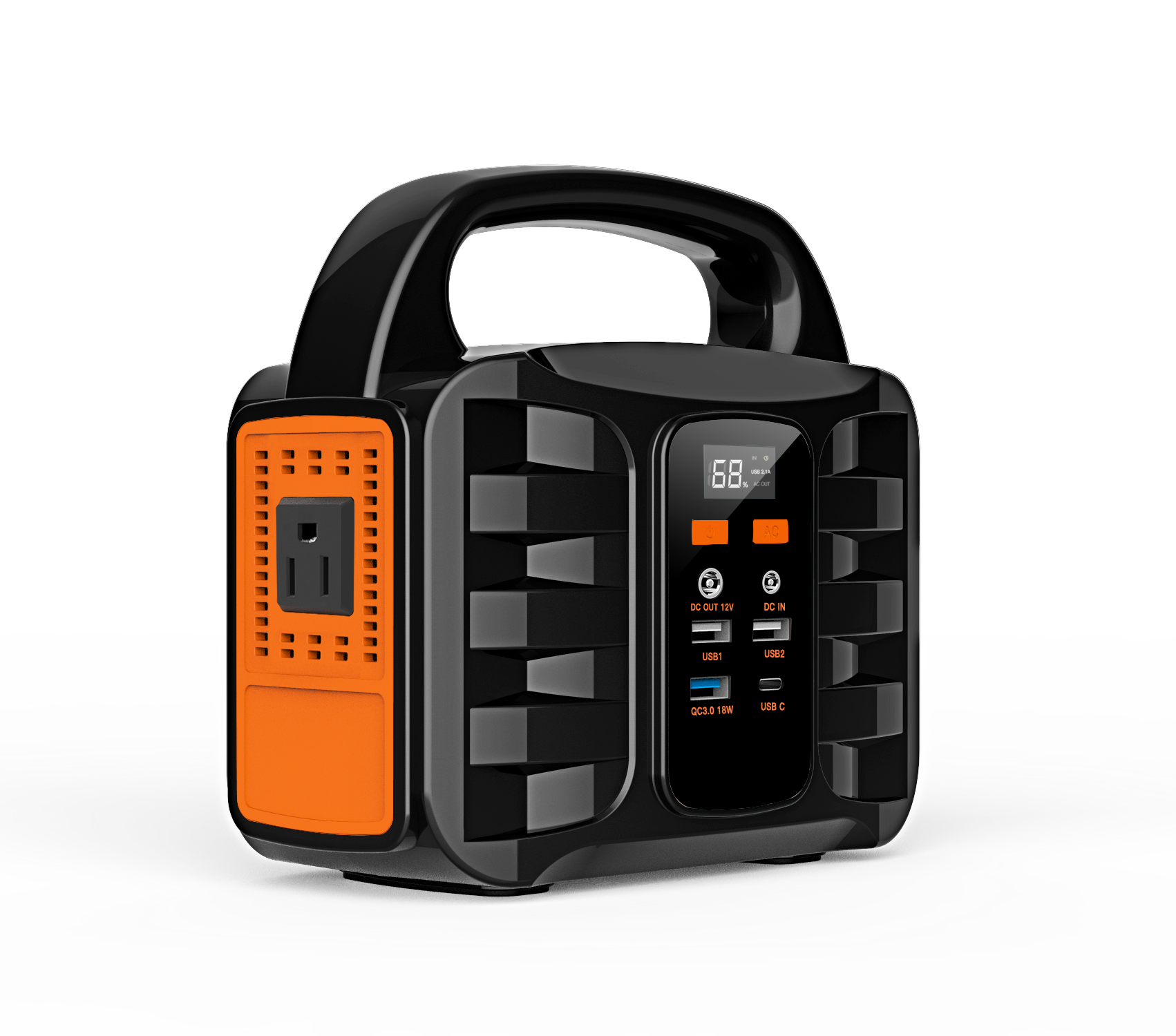
Navigating the Energy Storage Landscape: An In-depth Look at YUCOO’s Contribution and Innovation
Click: 709 Date: 12/11/2023 10::01::07 AM
Navigating the Energy Storage Landscape: An In-depth Look at YUCOO's Contribution and InnovationUnderstanding Energy Storage Technologies: A Look at YUCOO's Power SolutionsEnergy storage systems refer to the methods used to store energy that can be used at a later time. The concept isn't new and has been in use in various forms for centuries. The earliest forms of energy storage were mechanical in nature, such as the use of water wheels. Over time, these systems evolved into more sophisticated forms, such as pumped hydro storage and thermal storage.Companies like YUCOO have been at the forefront of this evolution. With over 20 years of experience in the energy storage industry, YUCOO has been instrumental in driving the development and adoption of advanced energy storage solutions. Their products, which range from home energy storage systems to large-scale grid storage solutions, are renowned for their reliability and efficiency, and are used by customers around the world.YUCOO specializes in battery energy storage systems, particularly lithium-ion batteries. Their products are known for their high energy density, long lifespan, and excellent performance. YUCOO's battery systems are designed with advanced control systems to ensure safety and reliability, making them a preferred choice for both residential and commercial energy storage applications.Choosing the right energy storage system depends on several factors:Energy Efficiency: The efficiency of an energy storage system refers to the amount of energy that can be retrieved compared to the amount of energy stored. High-efficiency systems ensure that minimal energy is lost during the storage and retrieval process.Life Cycle: This refers to the number of charge-discharge cycles a system can undergo before its performance degrades significantly. A longer life cycle is desirable as it means the system won't need to be replaced as frequently.Flexibility: Energy storage systems can be used in a variety of applications, from supplying power during peak demand periods to stabilizing the grid. They can also be scaled up or down to match the needs of the user.Sustainability: By enabling the integration of more renewable energy into the grid, energy storage systems can contribute to sustainability efforts. They can store excess power produced by renewable sources and supply it when needed, reducing reliance on fossil fuels.YUCOO's energy storage systems embody these features. Their products are known for their reliability, with advanced control systems that ensure a stable power supply under various conditions. They offer a range of products that can be used in different applications, from home energy storage to grid storage, demonstrating their flexibility. And by leveraging high-efficiency lithium-ion batteries, YUCOO's systems can store and supply power from renewable sources, contributing to sustainability efforts.In conclusion, YUCOO's rich history, mission, and globally recognized product offerings make it a leading player in the energy storage industry. As the world continues to embrace sustainable energy practices, companies like YUCOO will play a crucial role in shaping the future of energyExploring Energy Storage Solutions: The Role of YUCOO in the IndustryYUCOO is a renowned name in the field of energy storage systems, with over 20 years of experience in the industry. The company has established itself as a trusted provider of advanced energy storage solutions, specializing in battery energy storage systems, particularly lithium-ion batteries. Their product line ranges from compact home energy storage systems to large-scale grid storage solutions. Each product is designed with attention to efficiency, reliability, and safety. YUCOO's advanced control systems ensure optimal performance and longevity of their products, making them a preferred choice among customers.YUCOO's energy storage systems embody several key features:Flexibility: Energy storage systems can be used in a variety of applications, from supplying power during peak demand periods to stabilizing the grid. They can also be scaled up or down to match the needs of the user.Sustainability: By enabling the integration of more renewable energy into the grid, energy storage systems can contribute to sustainability efforts. They can store excess power produced by renewable sources and supply it when needed, reducing reliance on fossil fuels.Reliability: Energy storage systems can provide a reliable supply of power, even in situations where the grid is unstable or during power outages. They can also smooth out the supply of power from renewable sources, which can be intermittent.Safety: Safety considerations are paramount, especially for chemical storage systems like batteries which can pose fire risks if not properly managed. YUCOO's systems are designed with safety in mind, featuring advanced control systems that monitor the system's performance and prevent issues like overcharging or overheating.YUCOO's products are used in a wide range of industries, from telecommunications to medical equipment and aerospace. In telecommunications, for instance, Industrial Battery Chargers are vital for ensuring a stable power supply to communication equipment. They help maintain the operation of communication networks even during power fluctuations. The battery chargers enable the storage of power, ensuring continuous operation even when the main power source is unavailable.In the medical field, Industrial Battery Chargers are critical for powering various medical devices. They provide the precise power replenishment required by each device, ensuring continuous operation of critical medical equipment. In the aerospace industry, where equipment often operates in harsh and unpredictable environments, the reliability of Industrial Battery Chargers is crucial. A power failure in this context could have catastrophic results. YUCOO's Industrial Battery Chargers provide the reliability needed to power these systems effectively.YUCOO's power supply solutions are designed to align with the principles of sustainable energy. They incorporate advanced technologies and designs that maximize efficiency, reduce power consumption, and minimize environmental impact. One of the key technological advancements in Yucoo's power supply solutions is the incorporation of high-efficiency designs. These designs utilize advanced power conversion technologies and topologies to minimize power losses and maximize energy conversion, resulting in higher overall efficiency.In conclusion, YUCOO's rich history, mission, and globally recognized product offerings make it a leading player in the energy storage industry. As the world continues to embrace sustainable energy practices, companies like YUCOO will play a crucial role in shaping the future of energy.The Future of Energy Storage Systems: YUCOO's Contribution to InnovationThe future of energy storage systems is an exciting field of innovation, with YUCOO playing a significant role in shaping this future. Energy storage systems are crucial for decarbonizing global energy systems and meeting future energy needs. They complement variable renewable energy (VRE) sources such as solar and wind, which are central in the decarbonization of the power sector.YUCOO's contributions to the energy storage industry are numerous. They specialize in battery energy storage systems, particularly lithium-ion batteries, which have high energy density, high power density, and high roundtrip efficiency. These batteries are widely used in electric vehicles and short-duration electricity system storage applications.YUCOO's products are designed to be highly efficient and reliable, with advanced control systems that ensure optimal performance and longevity. This makes them a preferred choice for both residential and commercial energy storage applications.One of the key innovations in YUCOO's energy storage solutions is the incorporation of high-efficiency designs. These designs utilize advanced power conversion technologies and topologies to minimize power losses and maximize energy conversion, resulting in higher overall efficiency.In the future, YUCOO and other companies in the energy storage industry will continue to innovate and develop new technologies to meet the growing demand for sustainable and reliable energy storage solutions. This includes the development of low-cost, long-duration storage systems, and the integration of advanced power electronics.Moreover, as the world moves towards decarbonization and the integration of more renewable energy into the grid, energy storage systems will play an increasingly important role. They will be needed to store excess power produced by renewable sources and supply it when needed, reducing reliance on fossil fuels.In conclusion, YUCOO's contributions to the energy storage industry are significant and will continue to shape the future of energy storage solutions. As the world continues to embrace sustainable energy practices, companies like YUCOO will play a crucial role in shaping the future of energy.Energy Storage Safety: Measures and Accidents in YUCOO's SystemsEnergy storage systems, particularly those using lithium-ion batteries, are subject to various safety hazards. These include electrical hazards such as electrical shock and arc flashes, which can cause serious harm to maintenance workers. Energy storage systems with voltages above 50 V can cause serious harm to workers who may be exposed to live parts. The presence of conductive fluids such as water can worsen the extent of the damage. Electrical arc flashes can occur at high-current contactors and generate high pressure and thermal loads inside the electrical enclosure.The inherent hazards of battery types are determined by the chemical composition and stability of the active materials, potentially causing the release of flammable or toxic gases. High operating temperatures pose high risks for human injuries and fires. Electrical hazards are present in each Battery Energy Storage System (BESS) type due to the power control systems for grid integration.Lithium-ion battery cells vent combustible gases under abnormal conditions. Hydrogen fluoride, HF, hydrogen cyanide (HCN) are toxic gases vented from the battery found in BESS in thermal runaway events. Lithium metal batteries contain lithium metal electrodes which can undergo aggressive chemical reaction when exposed to water or air. Lead acid batteries and vanadium redox batteries may vent hydrogen gases, from the sulphuric acid electrolyte. The acid electrolyte is extremely corrosive and can cause serious human injuries.YUCOO, like other companies in the energy storage industry, is aware of these safety hazards and takes measures to mitigate them. They design their systems with safety in mind, featuring advanced control systems that monitor the system's performance and prevent issues like overcharging or overheating. These control systems can detect abnormal conditions and shut down the system to prevent accidents.However, accidents can still occur. For example, the Jimei Dahongmen Shopping Centre 25 MWh Lithium Iron Phosphate battery explosion caused the loss of lives of 2 firefighters. Another case involved an overcharging incident leading to thermal runaway at a 1.0MW Li-ion BESS in South Korea. In 2019, four firefighters were severely injured in the Arizona Public Service 2.16 MWh Li-ion Battery explosion incident.These accidents highlight the need for improvement in the safety and risk assessment and management of these grid-scale renewable energy-integrated Battery Energy Storage systems. Companies like YUCOO are continuously working to improve their systems and make them safer.Battery Energy Storage: YUCOO's Expertise and Market TrendsYUCOO is a well-established player in the battery energy storage industry, with over 20 years of experience and a wide range of products designed to meet the needs of different applications. Their product line includes compact home energy storage systems, large-scale grid storage solutions, and industrial battery chargers, all of which are designed with a focus on safety, efficiency, and reliability.YUCOO's expertise in battery energy storage is evident in their use of lithium-ion batteries, which are known for their high energy density, long lifespan, and excellent performance. They are widely used in electric vehicles and short-duration electricity system storage applications. YUCOO's products are designed to be highly efficient and reliable, with advanced control systems that ensure optimal performance and longevity.In terms of market trends, the battery energy storage market is expected to grow significantly in the coming years. This growth is driven by several factors:Increasing Renewable Energy Generation: As the world moves towards more sustainable energy sources, there is a growing need for energy storage solutions to balance supply and demand. Battery energy storage systems can store excess power produced by renewable sources and supply it when needed, reducing reliance on fossil fuels.Growing Demand for Renewable Energy: The demand for renewable energy is increasing as more and more countries recognize the need to reduce their carbon emissions. Battery energy storage systems can help meet this demand by providing a reliable and efficient way to store and distribute power generated by renewable sources.Technological Advancements: Technological advancements in battery technology are leading to more efficient and cost-effective battery energy storage systems. These advancements are making battery energy storage a more viable option for both residential and commercial applications.In conclusion, YUCOO's expertise in battery energy storage, combined with the growing market trends, positions the company well to continue contributing to the development and adoption of energy storage solutions. As the world continues to embrace sustainable energy practices, companies like YUCOO will play a crucial role in shaping the future of energy.Integrating Energy Storage Batteries: YUCOO's Grid Integration SolutionsYUCOO is a leading provider of advanced energy storage solutions, with a focus on battery energy storage systems, particularly lithium-ion batteries. These systems are widely used in grid-level energy storage due to their high energy density, long lifespan, and excellent performance.Grid integration is a key aspect of YUCOO's energy storage solutions. These systems are designed to balance supply and demand, providing electrical energy for various large-scale deployment applications. They can store excess power produced by renewable sources and supply it when needed, reducing reliance on fossil fuels.The grid-level energy storage system plays a critical role in managing the daily, seasonal, and emergency demand for electrical power. A large peak-to-valley difference between day and night can be observed, and storing the generated power and providing vacant power during peak load by peak shaving and load leveling are necessary. Furthermore, the intermittent nature of renewable energy sources can lead to unpredictable fluctuations of output power, which cannot meet the demand for application to the electrical grid directly. Therefore, the power grid system needs to smooth the intermittent output power generated from renewable energy sources and reduce the fluctuations caused by renewable energy sources, such as wind and solar energy, by adjusting their output profiles.YUCOO's energy storage systems are designed to excel in these aspects. Their lithium-ion batteries are highly efficient and have a long life cycle, providing excellent value for money. YUCOO's systems are also designed with safety in mind, featuring advanced control systems that monitor the system's performance and prevent issues like overcharging or overheating. Furthermore, YUCOO offers a range of products to suit different needs, from compact systems for residential use to large-scale systems for commercial or grid storage. These features make YUCOO's energy storage systems a preferred choice among customers.In conclusion, YUCOO's expertise in grid integration solutions, combined with their commitment to quality and customer satisfaction, positions the company well in the growing market for energy storage systems. As the world continues to embrace sustainable energy practices, companies like YUCOO will play a crucial role in shaping the future of energy.
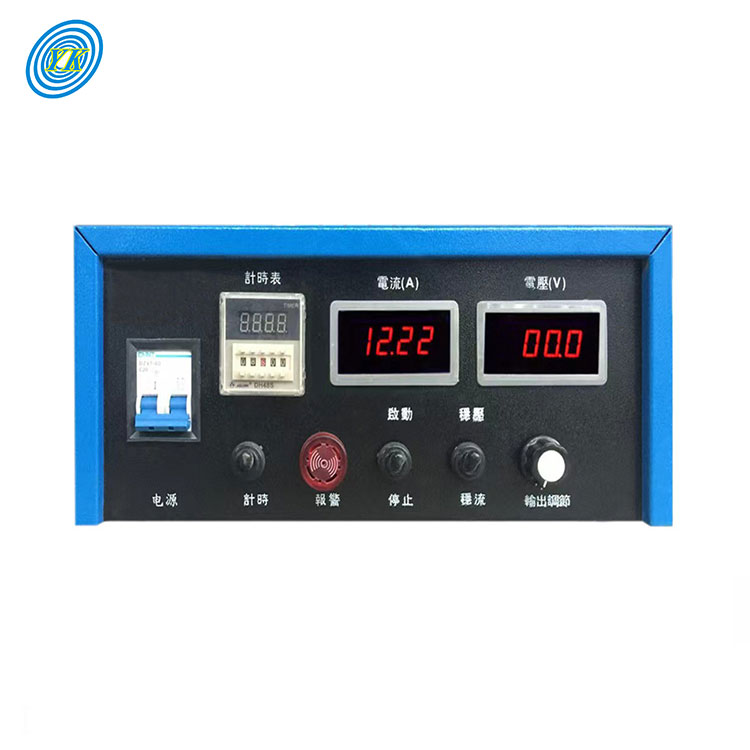
Click: 817 Date: 12/08/2023 3::56::45 PM
Exploring the Significance of Electroplating Power Supply: YUCOO's Contribution to Industry PracticesUnderstanding the Role of Electroplating Power Supply in IndustryThe electroplating power supply plays a significant role in the electroplating process, as it directly impacts the quality of the finished product. It ensures a uniform and smooth electroplated surface by providing a consistent and stable power supply.The electroplating power supply affects the process in several ways:Voltage: The voltage determines the speed of the electroplating process. A higher voltage leads to a faster process but can result in a rougher finish.Current: The current impacts the thickness of the electroplated layer. A higher current can lead to a thicker layer, but too much current can cause burning or pitting of the surface.Waveform: The waveform of the power supply, such as pulse or direct current, can affect the distribution of the electroplated layer and the overall finish.Modern electroplating power supplies often come with advanced features such as programmable controls, remote operation, and fault detection. These features enhance the efficiency and reliability of the electroplating process, resulting in higher quality products.In conclusion, the choice of an electroplating power supply is a critical decision in any electroplating operation. It is essential to consider the specific requirements of the process and the desired finish when selecting a power supply.Exploring YUCOO's Innovative Electroplating Power SupplyYUCOO is a leading manufacturer of electroplating power supplies with a significant presence in the global market. Over the years, YUCOO has developed advanced electroplating power supplies that have significantly enhanced the electroplating process.YUCOO's power supplies are designed for high efficiency and precision. They provide stable and consistent current, ensuring uniform and high-quality metal deposition. They also come with features like over-voltage and over-current protection, enhancing the safety and reliability of the electroplating process.In addition, YUCOO's power supply systems are energy-efficient, reducing the overall energy consumption in the electroplating process. This not only reduces operational costs but also contributes to more sustainable industrial practices.YUCOO's power supplies are equipped with advanced features that enhance their performance and reliability. They come with over-voltage and over-current protection, ensuring the safety of the electroplating process. The systems also have high efficiency, reducing energy consumption and heat generation, thereby contributing to more sustainable and cost-effective electroplating operations.Moreover, YUCOO's power supply systems are robustly designed, built to withstand the harsh conditions often found in industrial settings. They are designed for long-term reliability and durability, reducing the need for frequent maintenance or replacements.YUCOO's electroplating power supply has carved out a significant presence in the global market, thanks to its innovative features and reliable performance. Its advantages over competitors stem from its commitment to quality, precision, and efficiency, which are critical factors in the electroplating process.In conclusion, YUCOO's electroplating power supply stands out in the global market due to its quality, precision, efficiency, and safety features. Its understanding of the electroplating process and commitment to innovation make it a strong competitor in the global electroplating industry.Electroplating Power Supply: A Key Component in YUCOO's Product PortfolioYUCOO's electroplating power supply is a key component in their product portfolio, playing a pivotal role in the electroplating process. This power supply, also known as a rectifier, converts AC power to DC power, providing the required current and voltage for the electroplating process. These power supplies can be adjusted to deliver the desired current and voltage, allowing for precise control of the electroplating process.YUCOO's power supplies are designed for high efficiency and precision. They provide stable and consistent current, ensuring uniform and high-quality metal deposition. They also come with features like over-voltage and over-current protection, enhancing the safety and reliability of the electroplating process.YUCOO's power supply systems are designed with the critical role of providing the direct current necessary for the reduction of metal ions and their deposition onto the workpiece in mind. The quality of the power supply significantly impacts the quality of the electroplated layer, as it determines the consistency and stability of the current supplied.The power supply systems come with adjustable voltage and current settings, allowing for precise control over the electroplating process. This precision leads to a consistent electroplated layer, enhancing the quality and performance of the electroplated parts.Moreover, YUCOO's power supply systems are equipped with advanced features that enhance their performance and reliability. They come with over-voltage and over-current protection, ensuring the safety of the electroplating process. The systems also have high efficiency, reducing energy consumption and heat generation, thereby contributing to more sustainable and cost-effective electroplating operations.One of the unique benefits of YUCOO's power supply systems is their robust design, built to withstand the harsh conditions often found in industrial settings. They are designed for long-term reliability and durability, reducing the need for frequent maintenance or replacements.In conclusion, YUCOO's electroplating power supply stands out in the global market due to its quality, precision, efficiency, and safety features. Its understanding of the electroplating process and commitment to innovation make it a strong competitor in the global electroplating industry.The Impact of YUCOO's Electroplating Power Supply on Industry PracticesYUCOO's electroplating power supply has had a significant impact on industry practices, particularly in the automotive, electronics, and aerospace sectors. The power supply's ability to control the deposition process more precisely has led to better quality and consistency of the electroplated layers, contributing to improved efficiency and reduced energy consumption.In the automotive industry, electroplating is used to coat parts with a thin layer of metal to increase their durability and resistance to rust. YUCOO's power supplies have enabled the production of more reliable and durable components, significantly extending the lifespan of automotive parts and reducing the need for replacements. This has led to cost savings for manufacturers and consumers alike.In the electronics industry, electroplating is used to deposit thin layers of metals onto components such as connectors, switches, and other conductive parts. YUCOO's power supplies have enabled the production of more reliable and durable electronic components, contributing to the overall performance and longevity of electronic devices.In the aerospace industry, parts are often electroplated to increase their durability and resistance to wear and tear. With YUCOO's power supplies, these industries can produce components with improved lifespan and performance, leading to safer and more efficient vehicles and aircraft.Moreover, YUCOO's power supplies are energy-efficient, reducing the overall energy consumption in the electroplating process. This not only reduces operational costs but also contributes to more sustainable industrial practices.In conclusion, YUCOO's electroplating power supply has had a profound impact on various industries. By enabling the production of more durable, reliable, and efficient products, it has not only improved the quality of goods but also contributed to more sustainable industrial practices.YUCOO's Electroplating Power Supply: A Case StudyYUCOO's electroplating power supply has been instrumental in enhancing the electroplating process, contributing to the development of high-quality, durable, and efficient products in various industries. This case study explores the key features and benefits of YUCOO's electroplating power supply, its impact on industry practices, and its role in the global market.Key Features of YUCOO's Electroplating Power SupplyYUCOO's power supplies are designed for high efficiency and precision. They provide stable and consistent current, ensuring uniform and high-quality metal deposition. They also come with features like over-voltage and over-current protection, enhancing the safety and reliability of the electroplating process.Moreover, YUCOO's power supply systems are equipped with advanced features that enhance their performance and reliability. They come with over-voltage and over-current protection, ensuring the safety of the electroplating process. The systems also have high efficiency, reducing energy consumption and heat generation, thereby contributing to more sustainable and cost-effective electroplating operations.One of the unique benefits of YUCOO's power supply systems is their robust design, built to withstand the harsh conditions often found in industrial settings. They are designed for long-term reliability and durability, reducing the need for frequent maintenance or replacements.Impact on Industry PracticesYUCOO's electroplating power supply has significantly impacted industry practices. In the automotive industry, for example, electroplating is used to coat parts with a thin layer of metal to increase their durability and resistance to rust. YUCOO's power supplies have enabled the production of more reliable and durable components, significantly extending the lifespan of automotive parts and reducing the need for replacements, leading to cost savings for manufacturers and consumers alike.In the electronics industry, electroplating is used to deposit thin layers of metals onto components such as connectors, switches, and other conductive parts. YUCOO's power supplies have enabled the production of more reliable and durable electronic components, contributing to the overall performance and longevity of electronic devices.Role in the Global MarketYUCOO's electroplating power supply has carved out a significant presence in the global market, thanks to its innovative features and reliable performance. Its advantages over competitors stem from its commitment to quality, precision, and efficiency, which are critical factors in the electroplating process.In conclusion, YUCOO's electroplating power supply stands out in the global market due to its quality, precision, efficiency, and safety features. Its understanding of the electroplating process and commitment to innovation make it a strong competitor in the global electroplating industry.Electroplating Power Supply Market: YUCOO's PerspectiveYUCOO's perspective on the electroplating power supply market is grounded in their extensive experience and innovative approach to the technology. With over 20 years in the industry, YUCOO has developed advanced electroplating power supplies that have significantly enhanced the electroplating process.Key Features of YUCOO's Electroplating Power SupplyYUCOO's power supplies are designed for high efficiency and precision. They provide stable and consistent current, ensuring uniform and high-quality metal deposition. They also come with features like over-voltage and over-current protection, enhancing the safety and reliability of the electroplating process.Impact on Industry PracticesYUCOO's electroplating power supply has significantly impacted industry practices. In the automotive industry, for example, electroplating is used to coat parts with a thin layer of metal to increase their durability and resistance to rust. YUCOO's power supplies have enabled the production of more reliable and durable components, significantly extending the lifespan of automotive parts and reducing the need for replacements, leading to cost savings for manufacturers and consumers alike.In the electronics industry, electroplating is used to deposit thin layers of metals onto components such as connectors, switches, and other conductive parts. YUCOO's power supplies have enabled the production of more reliable and durable electronic components, contributing to the overall performance and longevity of electronic devices.Role in the Global MarketYUCOO's electroplating power supply has carved out a significant presence in the global market, thanks to its innovative features and reliable performance. Its advantages over competitors stem from its commitment to quality, precision, and efficiency, which are critical factors in the electroplating process.Future OutlookLooking ahead, YUCOO is likely to continue leveraging its expertise in electroplating technology to develop more advanced power supplies. Given the growing demand for high-quality, sustainable products across various industries, YUCOO's commitment to innovation and sustainability positions it well to capture future market opportunities.In conclusion, YUCOO's perspective on the electroplating power supply market is one of innovation, quality, and sustainability. Their commitment to these principles has enabled them to carve out a significant presence in the global market and continue to drive advancements in the electroplating process.
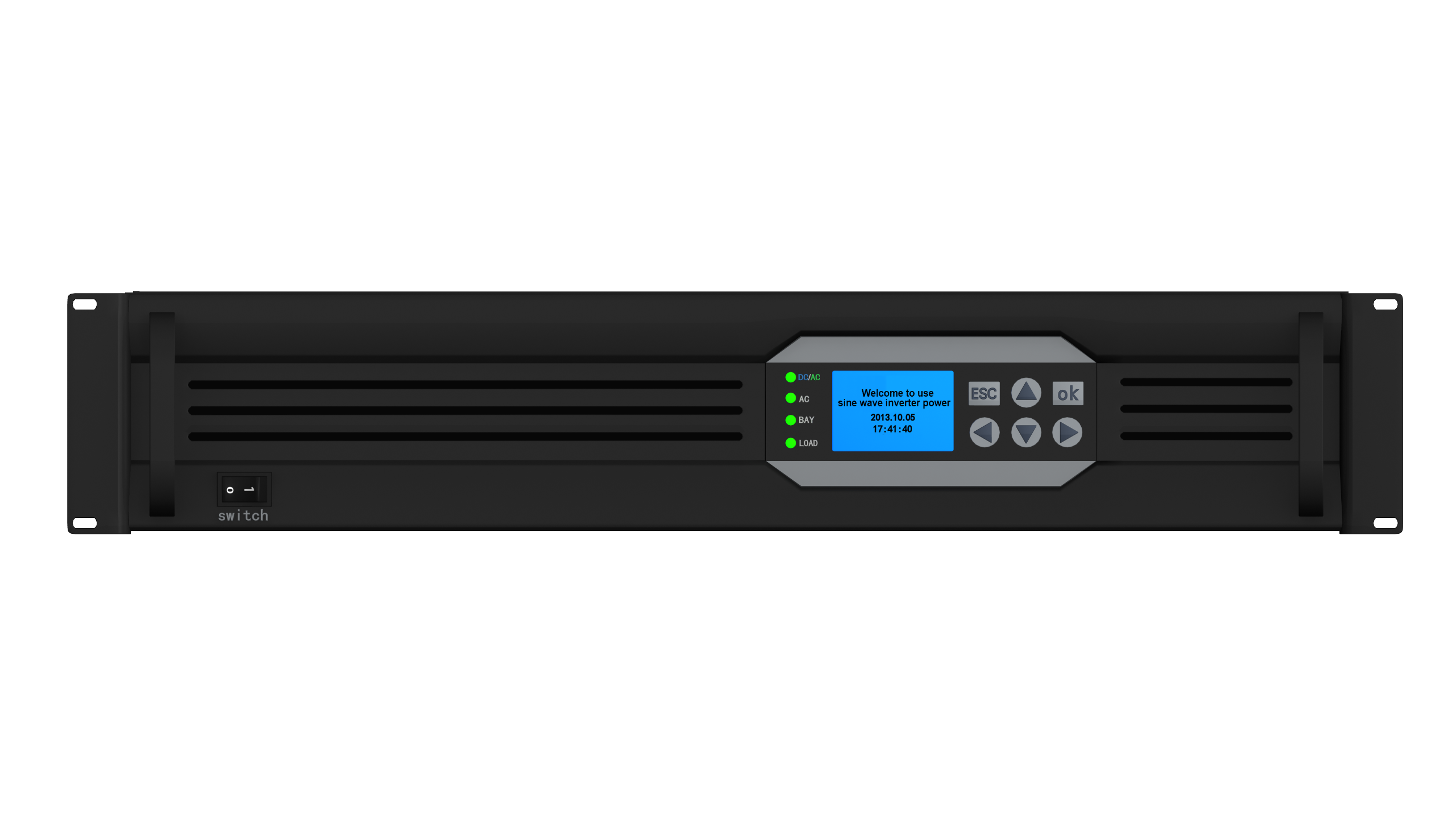
Harnessing Efficient Power Solutions: A Deep Dive into YUCOO’s Telecom Inverters
Click: 823 Date: 12/07/2023 10::45::45 AM
Harnessing Efficient Power Solutions: A Deep Dive into YUCOO's Telecom InvertersThe Role of Inverters in Telecom Power SystemsInverters play a crucial role in telecom power systems. They are the backbone of these systems, converting direct current (DC) to alternating current (AC) to power various telecom equipment. This conversion is necessary because while most telecom equipment operates on DC, they often require AC for certain functions.In a typical telecom power system, the primary source of power is usually a DC source like a battery or a solar panel. However, certain devices within the telecom infrastructure, such as servers and computers, require AC power to operate. This is where inverters come in. They convert the DC power from the primary source into AC power suitable for these devices.Moreover, inverters in telecom power systems also serve as a power backup solution. In case of a power outage, the inverter can switch to battery mode, ensuring a continuous power supply and preventing any potential downtime. This feature is especially important in the telecom industry where uninterrupted service is crucial.For example, in a telecom station, if the grid power fails, the DC batteries would instantly take over the power supply, ensuring that the telecom services remain operational. The inverter plays a critical role here by converting the DC power from the batteries to AC power, allowing the telecom equipment to continue running without any disruption.In summary, inverters are an essential component in telecom power systems, providing the necessary AC power for telecom equipment and acting as a reliable power backup solution. YUCOO, with its extensive experience in the inverter industry, recognizes this importance and strives to provide high-quality, reliable inverters for telecom applications.Exploring High-Efficiency and Energy-Saving Inverters in the Telecom IndustryIn the telecom industry, the efficiency and energy-saving capabilities of inverters are of paramount importance. High-efficiency inverters not only reduce the operational costs by minimizing power loss but also contribute to sustainability efforts in the industry.High-efficiency inverters are designed to maximize the conversion of DC to AC power. This means that a greater percentage of the input power is effectively used, resulting in less wasted energy. In a sector like telecom, where systems are operational 24/7, even a small increase in efficiency can lead to significant energy and cost savings over time.Energy-saving inverters, on the other hand, have advanced features like sleep mode or power-saving mode that reduce power consumption when the connected load is low or during periods of inactivity. This helps in minimizing unnecessary power usage, further contributing to energy efficiency.These high-efficiency and energy-saving inverters not only lower the operational cost for telecom operators but also contribute to sustainable telecom power solutions. By reducing energy consumption, they lessen the environmental impact of telecom operations. This is in line with the growing emphasis on green energy in the telecom sector, where companies are seeking ways to reduce their carbon footprint and contribute to environmental sustainability.YUCOO's inverters are a prime example of this trend. They are designed for high efficiency and energy saving, making them ideal for telecom applications. By providing a reliable and efficient power solution, they help telecom operators achieve their sustainability goals while also ensuring uninterrupted service.YUCOO's Contribution to Telecom Power SolutionsYUCOO, with its two decades of experience in the inverter industry, has made significant contributions to telecom power solutions. Their products, known for their reliability and efficiency, are used by telecom companies worldwide, attesting to their quality and performance.One of the key strengths of YUCOO is their focus on research and development. This has allowed them to continually innovate and enhance their inverter technology to meet the evolving needs of the telecom industry. Their inverters are designed for high efficiency, reducing power loss during the conversion process, and saving energy, which is a critical requirement in telecom power systems.In addition, YUCOO's inverters are known for their reliability. They are built to withstand the demanding conditions of telecom operations, ensuring that they provide a consistent power supply even in challenging environments. This reliability is crucial for telecom companies, as any disruption in power can lead to service interruptions, affecting their operations and customer satisfaction.Furthermore, YUCOO offers a range of inverters to cater to different needs. Whether it's a small telecom station or a large data center, YUCOO has the right inverter solution. This flexibility has made YUCOO a preferred choice for many telecom companies.In conclusion, YUCOO's extensive experience, commitment to innovation, and focus on reliability and efficiency have made their inverters an integral part of telecom power solutions. By providing high-quality inverters, YUCOO is helping telecom companies ensure uninterrupted service, reduce operational costs, and move towards more sustainable operations.Inverter Technologies: A Look at YUCOO's Reliable Telecom InvertersYUCOO's inverters leverage advanced technologies to ensure reliability in telecom applications. These technologies not only allow for efficient power conversion but also incorporate features that enhance the overall reliability and longevity of the inverters.One key technology in YUCOO's inverters is the use of high-frequency Pulse Width Modulation (PWM) control. This technology ensures a stable and pure sine wave output, which is critical for the sensitive telecom equipment that requires a clean and stable power supply. By minimizing harmonic distortion and output voltage fluctuations, this technology enhances the performance and lifespan of the powered equipment.YUCOO's inverters also incorporate advanced power management features. These include an automatic sleep mode that reduces power consumption during periods of low or no load, thus enhancing energy efficiency and prolonging the inverter's lifespan. Additionally, they feature an intelligent cooling system that adjusts the fan speed based on the load and temperature, ensuring optimal operating conditions and preventing overheating, which is a common cause of inverter failure.Another crucial technology is the integration of advanced protection features. YUCOO's inverters have built-in protections against overloads, short circuits, over temperature, and low battery conditions. These protections safeguard the inverter and the connected equipment, ensuring reliable operation and preventing potential damage or downtime.Lastly, YUCOO's inverters feature a user-friendly LCD and LED interface that provides real-time information about the inverter's status and performance. This allows for easy monitoring and troubleshooting, further enhancing the reliability of the system.In summary, the technologies behind YUCOO's inverters contribute to their high efficiency, durability, and reliability, making them an excellent choice for telecom applications. By integrating advanced control, power management, protection features, and user-friendly interfaces, YUCOO ensures that their inverters deliver reliable and efficient performance in the demanding telecom environment.The Future of Telecom Energy Systems: Solar Inverters and Green EnergyThe future of telecom energy systems is increasingly being shaped by the need for sustainability and energy efficiency. Solar inverters, which convert DC power generated from solar panels into AC power, represent one of the most promising solutions in this regard. They allow telecom systems to leverage renewable solar energy, reducing reliance on traditional power sources and contributing to environmental sustainability.Solar inverters can be particularly beneficial for telecom systems in remote or off-grid locations, where access to reliable power can be a challenge. By harnessing solar power, telecom operators can ensure uninterrupted service in these areas, while also reducing their carbon footprint.YUCOO is well-positioned in this green energy trend, with its range of solar inverters designed specifically for telecom applications. These inverters are designed to handle the variable and intermittent nature of solar power, ensuring a stable and reliable power supply even with fluctuations in solar energy generation.In addition to their solar inverters, YUCOO is also committed to creating energy-efficient products. Their high-efficiency inverters reduce power loss during the conversion process, thereby saving energy and contributing to sustainability efforts in the telecom industry.Furthermore, YUCOO's research and development efforts continue to focus on creating innovative and sustainable power solutions. This commitment to green energy and sustainability, combined with their extensive experience and expertise in the inverter industry, positions YUCOO as a leading player in the future of telecom energy systems.In conclusion, the potential of solar inverters and green energy in telecom is immense, and YUCOO is at the forefront of this trend, providing efficient and sustainable power solutions that meet the evolving needs of the telecom industry.Choosing the Best Inverter: Reviews, Prices, and Specifications of YUCOO's Telecom InvertersChoosing the best inverter for telecom applications involves considering several factors, including performance, price, and technical specifications. YUCOO, with its wide range of inverters, offers options that cater to various needs and budgets, making it a preferred choice for many telecom operators.Performance: YUCOO's inverters are known for their high efficiency and reliability. They use advanced technologies like high-frequency PWM control to provide a stable and pure sine wave output, ensuring optimal performance for the connected telecom equipment. The built-in power management and protection features further enhance their performance by reducing power consumption and protecting against potential damage.Price: YUCOO offers a range of inverters at different price points, catering to various budgets. Despite their competitive pricing, YUCOO does not compromise on quality or performance, ensuring that customers receive excellent value for their investment.Specifications: YUCOO's inverters come with a range of technical specifications to suit different needs. They offer inverters with different power capacities, input and output voltage ranges, and features. For instance, some models come with an automatic sleep mode for energy efficiency, while others feature an intelligent cooling system to prevent overheating. These specifications allow customers to choose an inverter that perfectly matches their requirements.Reviews: YUCOO's inverters have received positive reviews from customers worldwide. Users often highlight their high efficiency, reliability, and the quality of customer service. These reviews testify to the performance and quality of YUCOO's inverters and can be a helpful guide for potential buyers.In conclusion, when choosing an inverter for telecom applications, considering the performance, price, and specifications is crucial. YUCOO's wide range of high-quality inverters, coupled with positive customer reviews, offers potential buyers a range of options to choose from, helping them make an informed decision that best suits their needs.
